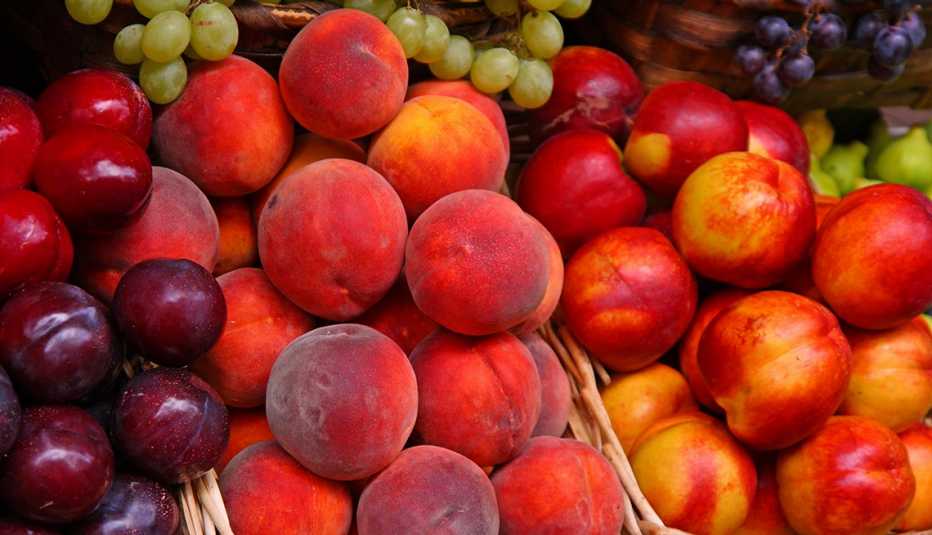AARP Hearing Center


A nationwide outbreak of listeria was traced back to peaches, nectarines and plums sold under the HMC Farms and Signature Farms brands.
As of Nov. 20, at least 11 people were infected, resulting in 10 hospitalizations and one death across seven states, according to the Centers for Disease Control and Prevention.
The recalled fruit brands
The recalled peaches, nectarines and plums were sold at retailers including Albertsons stores such as Safeway, Aldi, Publix, Sprouts Farmers Market, Walmart and Sam’s Club between May 1, 2022, and Nov. 15, 2022 and from May 1, 2023 through Nov. 15, 2023.
The fruit was sold individually and in 2-pound bags branded with “HMC Farms” or “Signature Farms.” No organic fruit was recalled.
These individual fruits that were recalled may have a sticker that says “USA-E-U” with a number. They are:
- Yellow peach: 4044 or 4038
- White peach: 4401
- Yellow nectarine: 4036 or 4378
- White nectarine: 3035
- Red plum: 4042
- Black plum: 4040
Public health officials are working to determine if any additional fruits or products made with the recalled fruits are contaminated.
Advice to consumers
Although the recalled fruit is no longer available for sale in stores, the CDC is concerned that products may still be in people’s homes and potentially stored in their freezers. Anyone who has any of the recalled fruit or suspects having them should throw them away or return them to the store where they were purchased.
Make sure to clean the refrigerator and any other containers or surfaces that may have touched the recalled fruit. Listeria can survive in the refrigerator and easily spread to other foods and surfaces.
Any other questions can be made by contacting HMC Farms’ consumer information desk at 844-483-3867.
Symptoms of a listeria infection
Listeriosis, the infection stemming from consuming food contaminated with Listeria monocytogenes bacteria, poses a severe threat, particularly to individuals aged 65 and older, those with compromised immune systems, pregnant women and newborns.
Symptoms associated with a listeria infection includes stiffness in the neck, confusion, loss of balance, convulsions, fever, muscle aches and fatigue, according to the CDC.
Pregnant women usually experience only fever, fatigue and muscle aches. However, listeriosis can lead to premature birth or pregnancy loss and can cause serious illness or death in newborns. Anyone who experiences symptoms of severe listeria illness should call their health care provider.
About 1,600 people in the U.S. get listeriosis each year, resulting in an average of 260 deaths, the CDC estimates. Americans 65 and older are four times as likely as others to get a listeria infection.
Editor's note: This story, originally published Nov. 21, 2023, has been updated to include additional retailers who sold the recalled products.





































































More From AARP
Cantaloupes Recalled Amid Salmonella Outbreak
Whole and precut varieties affectedWhat Happens to Your Body When You Eat Too Much?
Here’s why you may feel so bad after a big meal
How to Safely Store and Use Holiday Leftovers
Give that extra food a second chance and keep it from spoiling